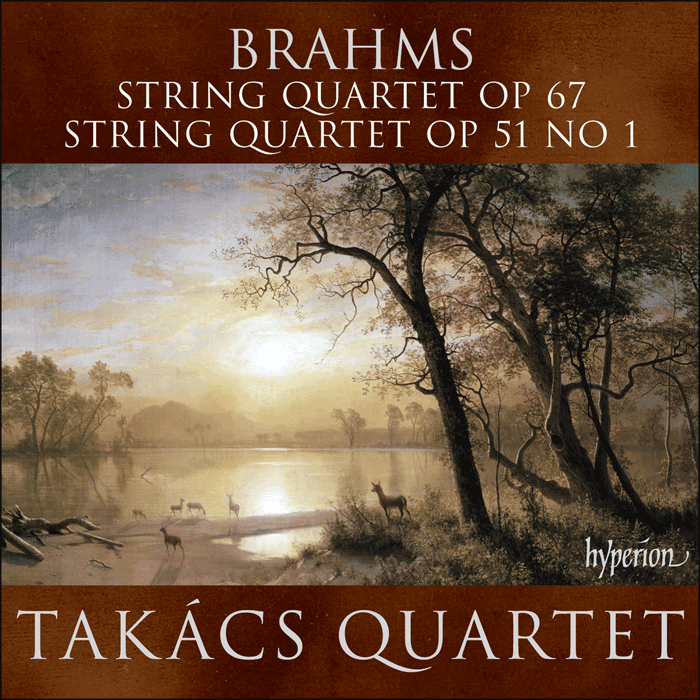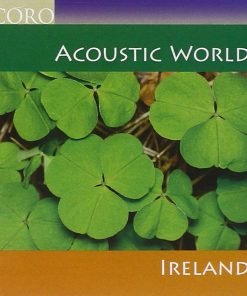BRAHMS: String Quartets, Op. 67 & Op. 51, No. 1 – Takacs String Quartet Hyperion
$ 20,99 $ 12,59

String Quartet in B flat major Op 67[33’19]
1
Vivace[9’33]
2
Andante[6’41]
3
Agitato, Allegretto non troppo[7’40]
4
Poco allegretto con variazioni[9’25]
String Quartet in C minor Op 51 No 1[31’02]
5
Allegro[10’51]
6
Romanze: Poco adagio[6’21]
7
Allegretto molto moderato e comodo – Un poco più animato[8’09]
8
Allegro[5’41]

New recordings by the Takács Quartet on Hyperion have become important landmarks in the musical calendar. This second disc of Brahms string quartets looks set to repeat all the commercial and critical success of their first.
It took twenty years for the famously self-critical Brahms to release his Op 51 string quartets for publication. Despite frequent requests, they were held back until they had reached his requisite standard of perfection. It is clear that Brahms’s struggle with the string quartet medium eventually led him to find an intensely personal language for it, with an unmistakable originality of melody and texture. Op 51 No 1 is both suffused with great musical richness and organically unified, with each idea growing with unerring logic out of the last in a process of continual development, and the main subject of each movement clearly arising out of the same germ.
Having hesitated so long over his first two string quartets, Brahms managed to produce their successor, Op 67, without any protracted birth-pangs, and the fact that the new work was dedicated to a well-known physician prompted him to elaborate on the medical analogy. ‘I am’, he told Theodor Wilhelm Engelmann (the husband of the pianist Emma Brandes, and himself a keen amateur cellist) ‘publishing a string quartet, and may need a doctor for it (as with the first ones). This quartet rather resembles your wife—very dainty, but brilliant! … It’s no longer a question of a forceps delivery; but of simply standing by. There’s no cello solo in it, but such a tender viola solo that you may want to change your instrument for its sake!’
Fast Shipping and Professional Packing
Due to our longstanding partnership with UPS FedEx DHL and other leading international carriers, we are able to provide a range of shipping options. Our warehouse staff are highly trained to pack your goods exactly according to the specifications that we supply. Your goods will undergo a thorough examination and will be safely packaged prior to being sent out. Everyday we deliver hundreds of packages to our customers from all over the world. This is an indication of our dedication to being the largest online retailer worldwide. Warehouses and distribution centers can be located in Europe as well as the USA.
Orders with more than 1 item are assigned processing periods for each item.
Before shipment, all ordered products will be thoroughly inspected. Today, most orders will be shipped within 48 hours. The estimated delivery time is between 3-7 days.
Returns
The stock is constantly changing. It's not entirely managed by us since we are involved with multiple parties such as the factory and our storage. The actual stock can fluctuate at any time. Please understand it may happen that your order will be out of stock when the order is placed.
Our policy is valid for 30 days. If you haven't received your product within 30 days, we're not able to issue either a return or exchange.
You are able to return a product if it is unused and in the same condition when you received it. It must also still remain in the original packaging.
Related products
MUSIC CD
MUSIC CD
MUSIC CD



















































